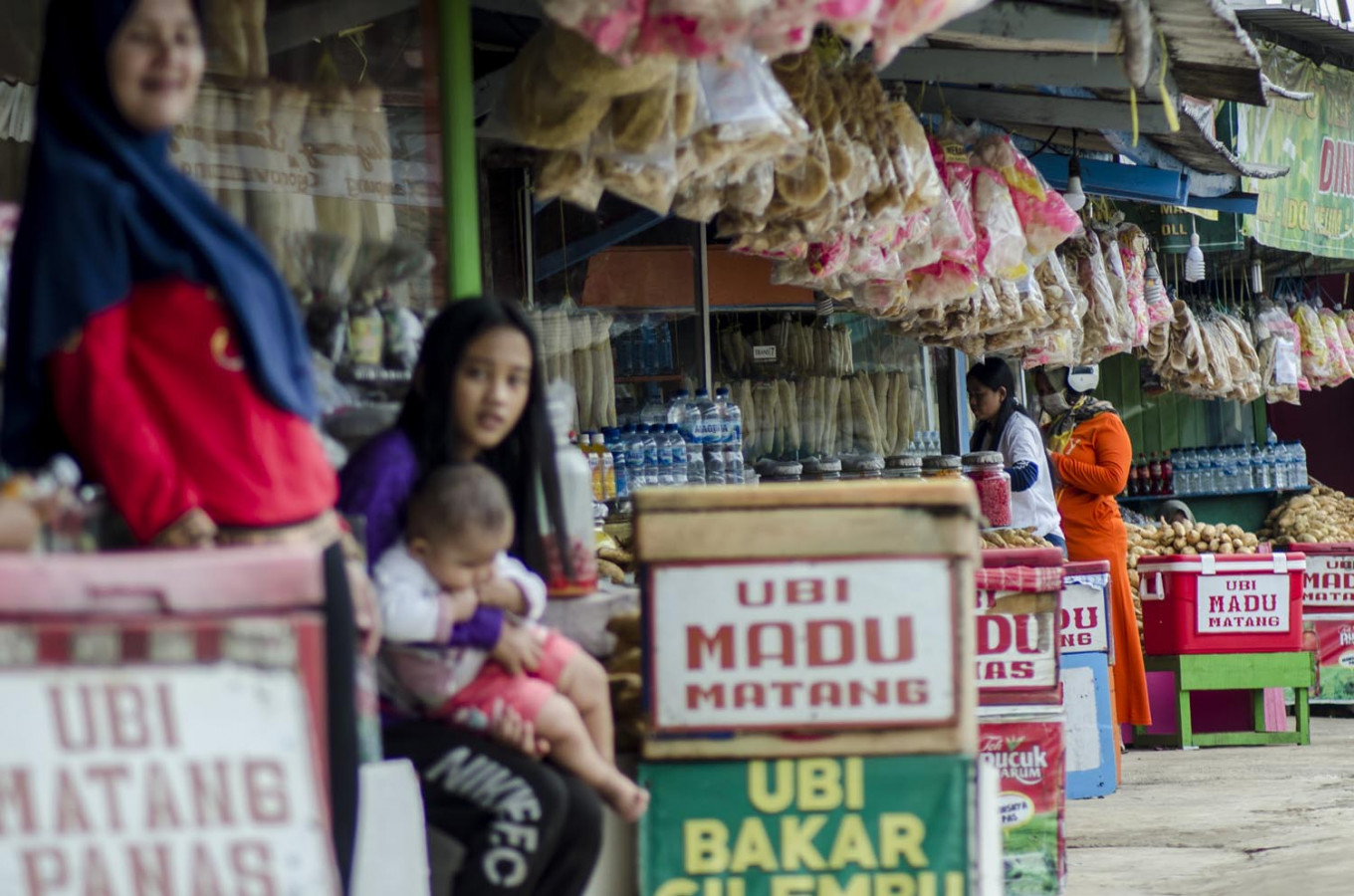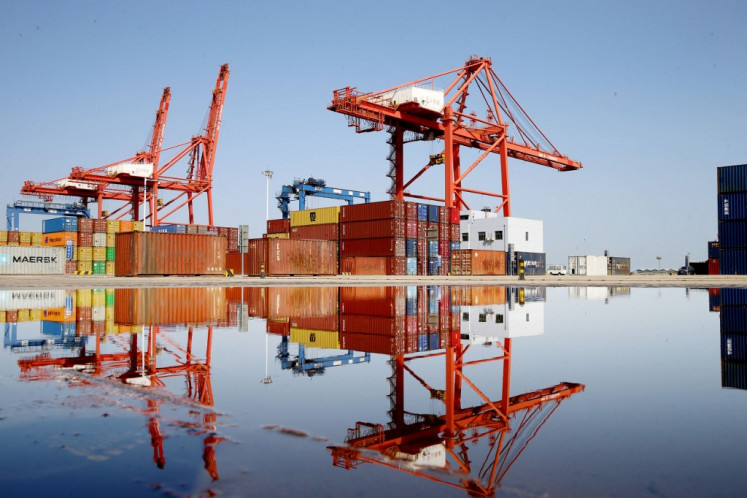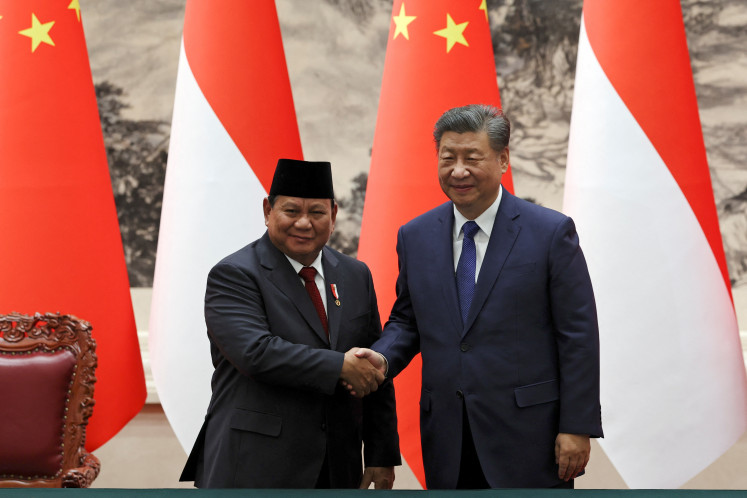Popular Reads
Top Results
Can't find what you're looking for?
View all search resultsPopular Reads
Top Results
Can't find what you're looking for?
View all search resultsKill the virus, not the economy
Indonesia's financial system is also grappling with several major global and domestic sources of vulnerability that could disrupt stability.
Change text size
Gift Premium Articles
to Anyone
T
he persistent global economic downturn impacted macroeconomic and financial system dynamics in Indonesia throughout last year and early this year. Those conditions were overshadowed by the COVID-19 pandemic, which has put tremendous pressure on the global financial system and macroeconomic stability.
Indonesia's financial system is also grappling with several major global and domestic sources of vulnerability that could disrupt stability. One such vulnerability stems from pressure on corporate performance across all segments, notably micro, small and medium enterprises (MSMEs).
The spread of COVID-19 and the containment measures to curb the pandemic could exacerbate pressure on corporations, including MSMEs, and households, thus potentially impacting the financial services industry, particularly banking. MSMEs have been hit by collapsing sales as well as capital and raw material constraints, leaving them vulnerable in terms of meeting principal and interest repayment obligations to banks, especially among MSMEs engaged in agriculture, export, handicraft and tourism.
The downturn in the real sector has intensified risk in the financial industry, as evidenced by a rapid increase in the nonperforming loan (NPL) ratio for the MSME and consumer segments from 3.61 percent in the fourth quarter of 2019 to 4.06 percent in the first quarter of 2020.
The government has prepared a set of measures to bail out MSMEs through the provision of subsidies for their interest costs and the deferment of loan repayments under the national economic recovery program. Concerning loan restructuring, the Financial Services Authority (OJK) is relaxing regulations on the assessment of borrower creditworthiness, including loan restructuring.
The scope of loan restructuring includes lower lending rates, longer maturity periods, reduced principal in arrears and interest in arrears, additional loan facilities or loan conversion to temporary equity participation. The government, through the Finance Ministry, will provide financial support by postponing loan repayments and budgeting Rp 34.15 trillion (US$2.1 billion) to subsidize interest payments on 60.66 million loans for a period of six months.
To ensure that the interest subsidies are disbursed appropriately to bankable and nonbankable MSMEs, the government is cooperating with several parties, including the applicants (borrowers), bank and nonbank lenders, the Finance Ministry and the OJK. All parties are involved through checks and balances, from borrower data verification to proposals containing individual data submitted to the government and demand for interest subsidies to the subsidy disbursements and monthly reporting on subsidy realisation. Nonbankable MSMEs are eligible to receive the interest subsidy by first applying for a new bank loan in accordance with less stringent administrative requirements.
As for loan restructuring, several banks, dominated by the BUKU 4 banks (largest), and nonbank financial institutions have already restructured MSME and non-MSME loans and offered a period of repayment relief on instalments. The OJK regularly monitors loan restructuring in the banking industry and finance companies for borrowers impacted by COVID-19.
The realization of restructured loans as of May 4 is as follows: 74 banks have restructured Rp 207.2 trillion worth of loans of 1.02 million borrowers. Almost 820,000 of these are MSMEs with Rp 99.36 trillion worth of debt restructured.
To ensure the benefits of relaxing and restructuring loans are enjoyed by MSMEs, the OJK has prepared a monitoring system and a call center at the Cooperatives, Small and Medium Enterprises Ministry to address complaints and suggestions.
However, COVID-19 emergency policies must still be communicated effectively to all MSMEs in cooperation with local governments and the banking industry. Meanwhile, synergy with the Village Community Empowerment Agency (BPMD), relevant associations, state-owned enterprises, NGOs and financial consultants in the banking industry is required to maximize the benefits of government assistance.
The government will also extend working capital loans with a total budget of Rp 125 trillion. Working capital guarantees will be provided to MSMEs, because after the restructuring program and COVID-19 pandemic have ended, MSMEs will still require new working capital loans to kickstart operations at a time when the banks will pursue a strategy of selective lending in order to contain the credit risk. In principle, such efforts target all bankable and nonbankable MSMEs. Measures to accelerate access to the financing/capital scheme include expediting loans for suppliers to procure raw materials and helping subsistence MSMEs.
Meanwhile, the government is also preparing tax relief for MSMEs totalling Rp 28.06 trillion, with a special income tax rate from zero to 0.5 percent of monthly turnover (effective for monthly turnover from April to September 2020) for MSMEs with a valid tax number (NPWP). To ensure the tax incentives are on target, the Taxation Directorate General has set up an online reporting mechanism (in accordance with Finance Ministry Regulation No. 44/2020), with a call center to receive suggestions and complaints at the Cooperatives, Small and Medium Enterprises Ministry. The directorate general also works with tax consultants across Indonesia to explain the tax breaks to impacted businesses and communities.
Other efforts include effective COVID-19 emergency policy communication to MSMEs by proactively contacting MSMEs experiencing difficulties in conjunction with the local government and banking industry. MSMEs without a valid tax number are urged to register online in order to be eligible for tax incentives, considering that existing income tax rates shall remain applicable to MSMEs without a tax number.
The COVID-19 pandemic has created new ways of working and transacting. During the pandemic, online transactions have soared. This has provided impetus for MSMEs and accelerated the digital economy by exploring new horizons, which will ultimately stimulate economic growth as we welcome a new normal.
***
The writer is an executive of Bank Indonesia. The views expressed are his own.










